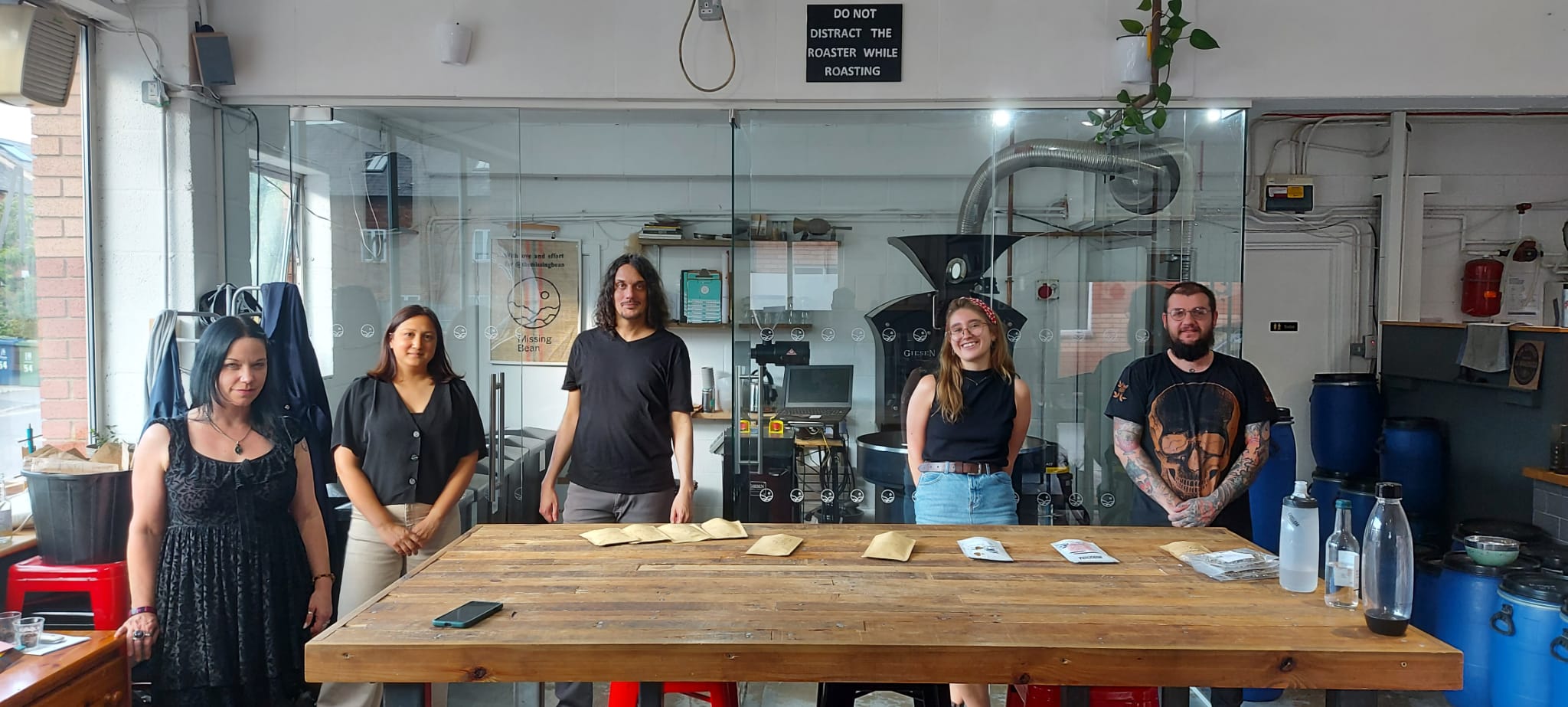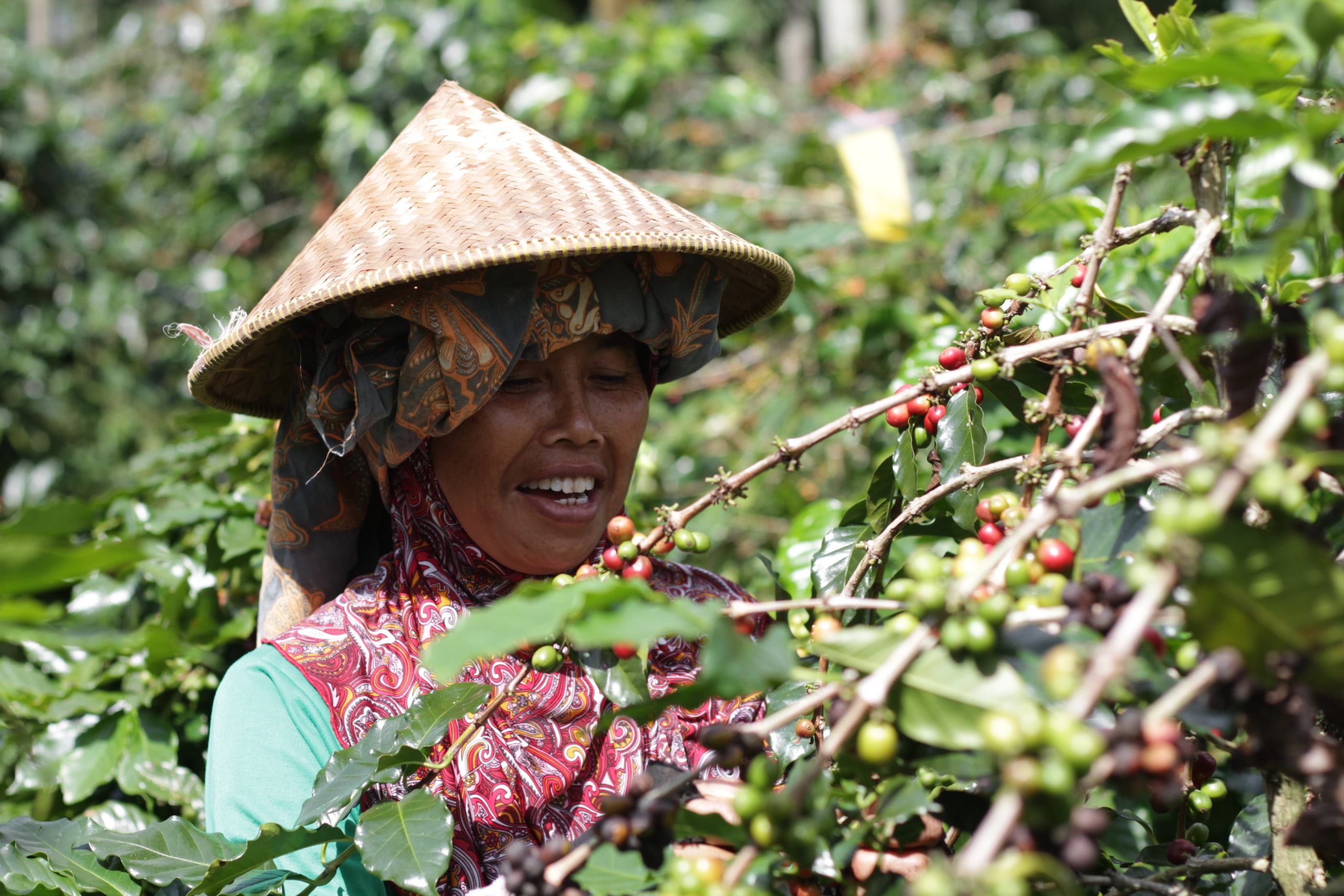
The LFP Wildlife-Friendly Coffee Programme is a collaborative project between coffee farmers resident to Cipaganti and Pangauban and the Little Fireface Project. The aim of the programme is to promote and encourage the use of wildlife-friendly farming practices, such as natural pesticides, organic fertilisers and agroforestry (planting trees within farms).
This programme has been ten years in the making, after years of discussions with local farmers, and was formally created in 2019. Of the two coffee farmer cooperatives we work with, there are now 400 farmers who work with us on the coffee programme. So, what have we achieved so far?
Natural pesticides and fertilisers
Traditional farming practices in Indonesia involve using organic fertilisers, such as chicken or rabbit manure, and natural pest control from surrounding animals. However, increased demand throughout the 20th and 21st century has led smallholder farmers to intensify farming practices, meaning that many have turned away from traditional methods of farming. Making natural alternatives more viable through decreasing prices and increasing productivity is key if we are to sustain soils and livelihoods in the long-term.
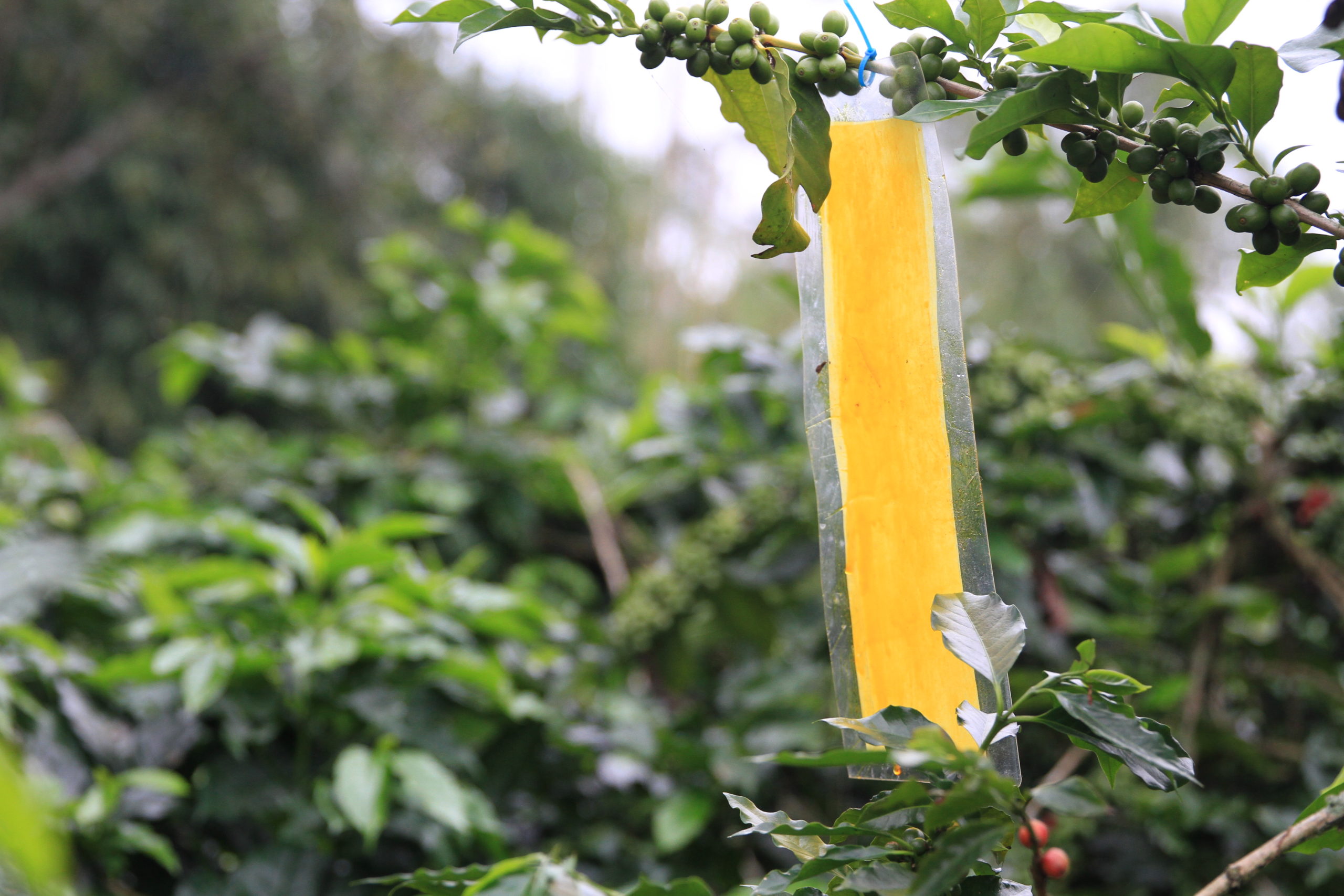
Farmers in the coffee programme now use Glumon™, a hormone-based biopesticide that lures in male coffee berry borers (the no. 1 coffee pest in the world), meaning that: a) no insects that are beneficial to the environment are caught in the cross-fire; and b) surrounding plants and animals and the soil below are not subjected to harmful chemicals.
Farmers also use rabbit manure in place of chemical fertilisers which is not only cheaper in the long-term, but protects against chemicals making their way into the food-chain, poisoning humans and animals in the local area.
Hunting and littering ban
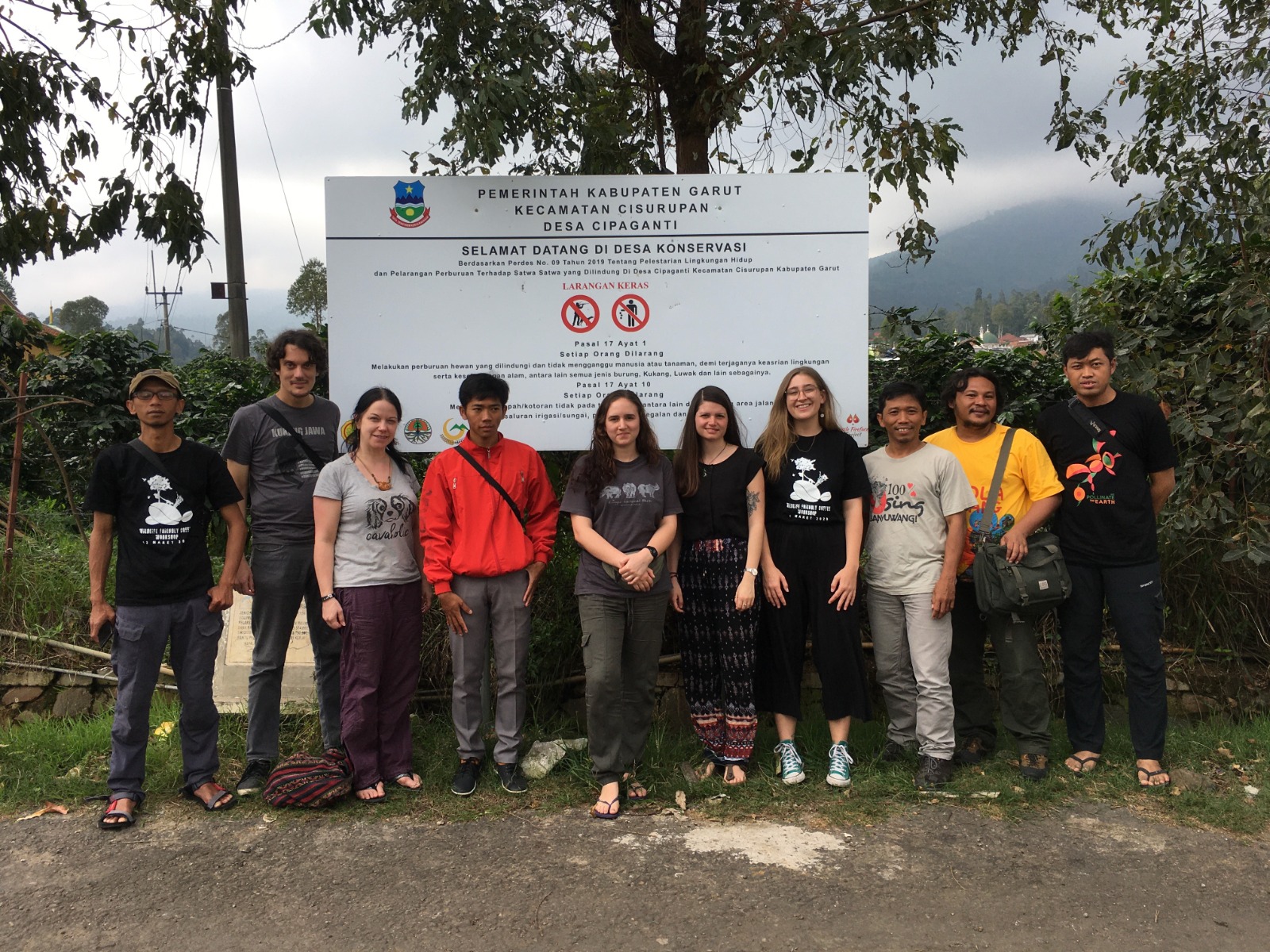
When setting up the wildlife-friendly coffee programme, Dr Marco Campera (pictured second from left) held discussions with local farmers to find out what it was that they wanted to achieve and gain through the coffee programme. He found that farmers were committed to reducing hunting, predominantly song bird hunting, in the local area. These farmers, primarily Pak Jan Jan Nugraha (leader of the Cipaganti coffee cooperative), made this dream a reality when they enforced the implementation of a complete hunting and littering ban into local law in December 2019. Since then, we have continued to educate residents on the importance of wildlife for local agriculture, including running curriculums in local schools and being invited to speak at the mosque.
Wildlife Friendly™ certification
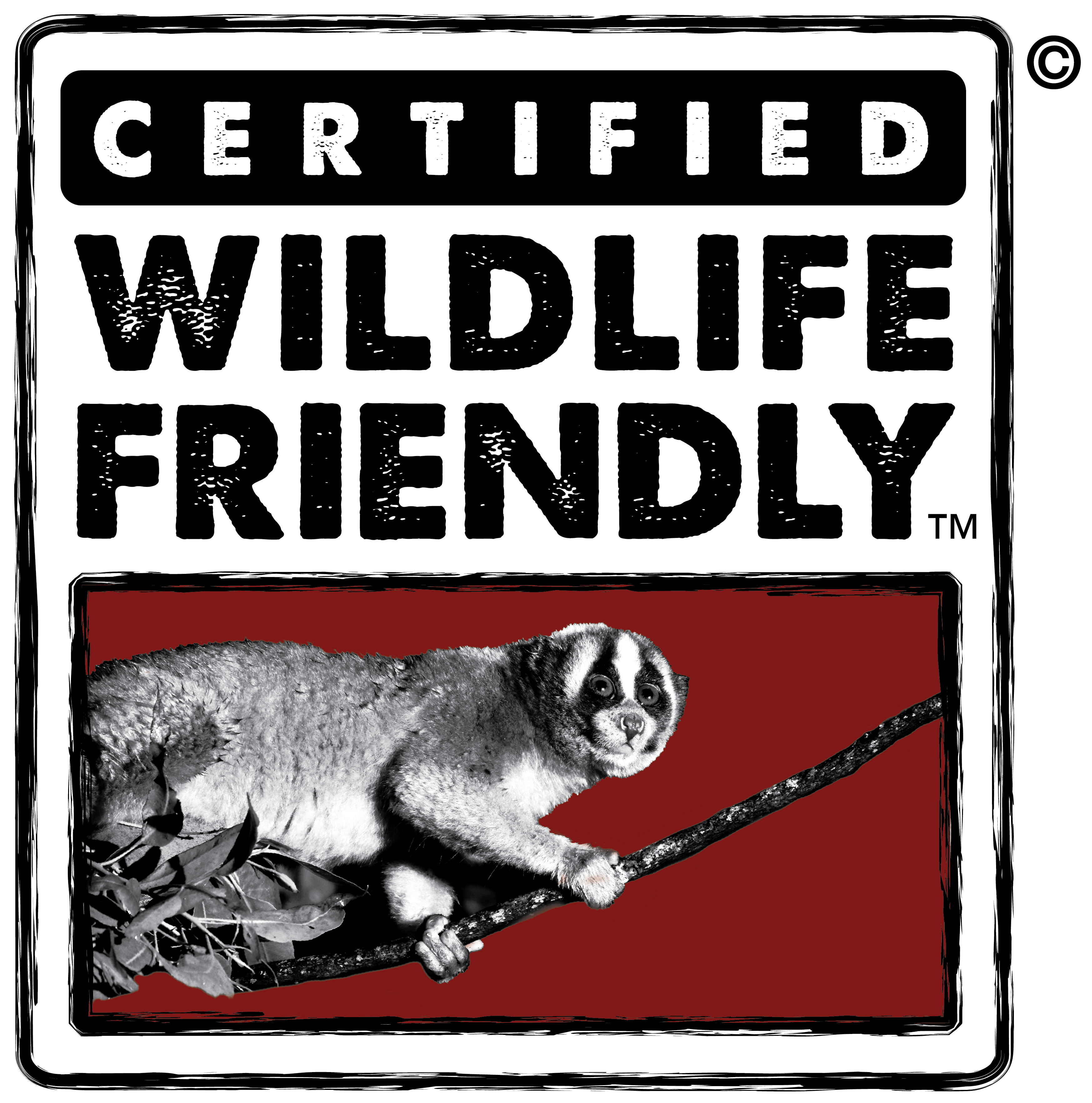
In December 2020, a combination of LFP’s conservation work and the wildlife-friendly practices of local farmers led to the coffee programme becoming Wildlife Friendly™ certified. This certification has only been given to 18 other projects in the world, and only one other coffee-based project. This certification is given to projects that contribute to the conservation of endangered animals whilst selling products responsibly sourced from these areas. This not only helps farmers get a premium price for their high-quality produce, but it incentivises the use of wildlife-friendly farming practices.
Export to UK
We are in the process of getting this Wildlife Friendly™ certified coffee to the UK, which has been no easy feat considering the travel and logistics limitations incurred from 2020 to 2022. However, the team in the UK have been using this time wisely and engaging with stakeholders at all stages of the coffee supply chain to ensure that when possible, our coffee will feel at home here in the UK.
Firstly, we have made contact with ethical importers, IndoChina, who specialise in Southeast Asian and Chinese coffee. Not only are they helping us physically bring our coffee to the UK, but they have Q-graded coffee, meaning that we can now state with absolute confidence that the coffee is “speciality”. We have also engaged with several local roasteries to generate buzz around our coffee and discussed with Oxford Brookes so that when our coffee is here, we will be able to showcase it in the university.
